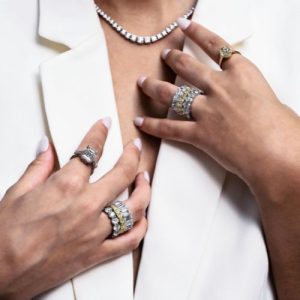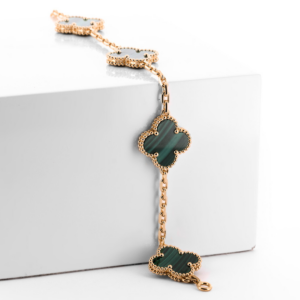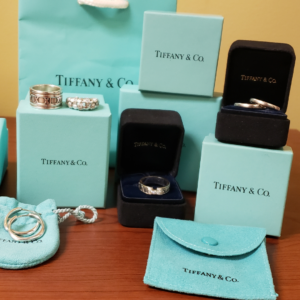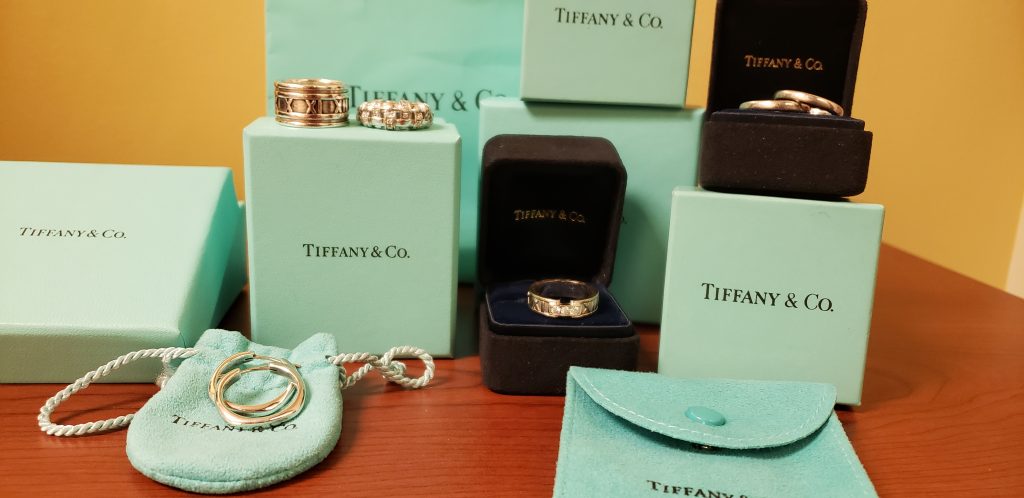
Tiffany & Co. Jewelry is a prestigious luxury brand known for its timeless designs, exquisite craftsmanship, and high-quality materials. Founded in 1837, Tiffany is renowned for its magnificent jewelry collections, which include engagement rings, necklaces, bracelets, and watches, featuring diamonds and precious metals such as platinum and 18-karat gold.
Tiffany jewelry is a symbol of elegance and sophistication, widely recognized for its iconic blue packaging and exceptional craftsmanship.
When it comes to selling Tiffany jewelry, following best practices ensures a successful transaction. Start by evaluating the jewelry’s value, gathering all original documentation (such as certificates of authenticity and receipts), and ensuring the item is in good condition.
Consulting a professional appraiser or a trusted buyer, such as Diamond Banc, also helps you set realistic expectations for the resale price.
The benefits of selling your Tiffany jewelry include the brand’s strong resale value, which is supported by high demand for luxury items. Tiffany pieces appreciate in value over time, especially for rare or limited-edition models.
Selling Tiffany jewelry provides financial flexibility, whether you’re upgrading your collection or seeking funds for other investments. Additionally, the presence of strong brand recognition makes Tiffany jewelry desirable, ensuring you receive a fair price.
However, there are red flags to watch out for when selling. These include low offers, evasive buyers, and potential scams. Always ensure the buyer is trustworthy, avoid hidden fees, and insist on secure payment methods.
Inconsistent paperwork, damage to the jewelry, or poorly executed repairs also lower the resale value; therefore, be sure to verify the authenticity and condition before proceeding with any sale.
Diamond Banc offers free appraisals, transparent offers, and fast payment to maximize the resale value of your Tiffany jewelry, ensuring a safe and efficient selling experience. Diamond Banc has offices nationwide and offers online services, providing same-day payment and ensuring secure transactions.
Table of Contents
- What Is Tiffany & Co. Jewelry?
- What Is the History of Tiffany & Co. Jewelry?
- What Is the Importance of Knowing About Your Tiffany Jewelry’s Value?
- What Are the Best Practices for Selling Your Tiffany Jewelry in the US Market?
- What Factors Determine the Resale Value of Tiffany Jewelry?
- How Much Do Boxes and Papers Affect Tiffany Jewelry Resale Value?
- What Are the Pros of Selling Your Tiffany Jewelry?
- What Are the Red Flags in Selling Tiffany Jewelry?
- What Are the Tips to Avoid Common Pitfalls When Selling Tiffany Jewelry? How Do You Start Your Tiffany Jewelry Selling Journey?
- How Can You Determine the Resale Value of My Tiffany & Co. Jewelry?
- What Are the Best Practices for Photographing Tiffany Jewelry?
- Does the Condition of My Tiffany Jewelry Significantly Affect Its Resale Price?
- Can Vintage or Antique Tiffany Jewelry Fetch a Higher Price Than Modern Pieces?
- Is Tiffany Jewelry a Good Investment for Future Resale?
- Do Pawn Shops Buy Tiffany Jewelry?
- Do Tiffany Lucida Diamond Rings Hold Their Value?
- Does Tiffany Jewelry Have Good Resale Value Compared to Other Brands?
- What’s the Best Place to Sell Second-Hand Tiffany Jewelry?
- How Do Online Platforms Determine the Value of Used Tiffany Pieces?
- How Do You Verify the Authenticity of Tiffany & Co. Jewelry?
What Is Tiffany & Co. Jewelry?
Tiffany & Co. Jewelry is luxury-grade jewelry designed and produced by Tiffany & Co., an American brand founded in 1837 and globally recognized for its superior craftsmanship, timeless designs, and use of high-quality materials, including 18k gold, sterling silver, and ethically sourced diamonds.
It is known as premium because each piece undergoes strict quality control, is handcrafted by expert artisans, and reflects Tiffany’s legacy of innovation in fine jewelry, including patented diamond cuts and exclusive collections.
What makes Tiffany jewelry special is its iconic status symbolized by the “Tiffany Blue Box,” along with exclusive collaborations, precise diamond grading standards, and pieces that appreciate in value due to brand prestige and enduring design appeal.
What Is the History of Tiffany & Co. Jewelry?
Tiffany & Co. Jewelry has a rich history dating back to its founding in 1837 by Charles Lewis Tiffany in New York City. Initially starting as a stationery and fancy goods store, Tiffany & Co. quickly established itself as a leader in fine jewelry, thanks to its commitment to high-quality materials and exceptional craftsmanship.
Over time, Tiffany became known for its iconic blue box, innovative designs, and use of sterling silver, diamonds, and gemstones.
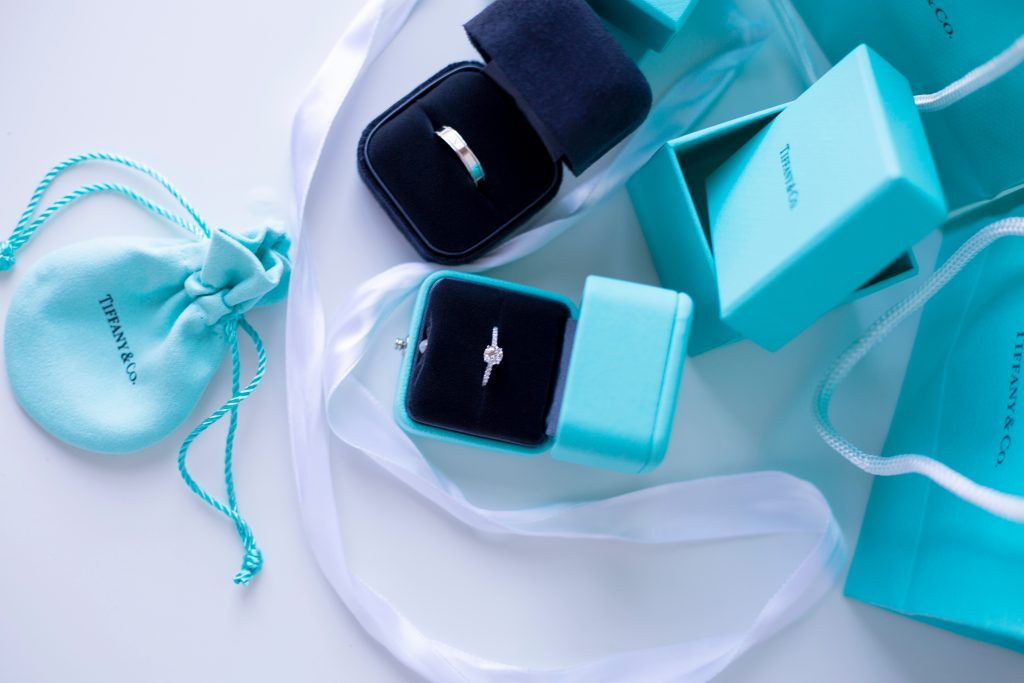
The brand gained international recognition, especially in the late 19th century, when it introduced its famous engagement ring designs and its “Tiffany Setting,” which revolutionized the way diamonds were set.
Throughout the years, Tiffany has continued to evolve, collaborating with renowned designers, expanding its collections, and solidifying its place as one of the most prestigious luxury jewelry brands in the world.
Today, Tiffany & Co. remains a symbol of elegance, craftsmanship, and innovation in the jewelry industry.
What Is the Importance of Knowing About Your Tiffany Jewelry’s Value?
Knowing the value of your Tiffany jewelry is important because it empowers you to make accurate, risk-free, and financially sound decisions, especially when planning to sell. Understanding the true market worth of your piece helps avoid undervaluation, enables you to justify your asking price, and prevents potential losses. Below are the common reasons why knowing the value matters:
- Insurance
Insurance is a financial safeguard that protects your jewelry against loss, theft, or damage. When you know the value of your Tiffany jewelry, obtain an insurance policy that ensures full reimbursement in case something happens to it.
Without an accurate valuation, you risk being underinsured, meaning the insurance payout does not cover the full replacement cost. Ensuring your jewelry’s value is up-to-date guarantees you’re adequately protected.
- Potential Resale
Potential resale refers to the ability to sell your Tiffany jewelry at a later time for a value based on its current market value. Tiffany Jewelry is regarded as a luxury asset that retains or even appreciates in value over time, particularly if it is a limited-edition or vintage piece. By understanding its value, set realistic expectations about how much you might earn if you decide to sell.
- Investment Value
Investment value refers to the potential for Tiffany jewelry to appreciate over time, offering a long-term financial return. Certain collections, especially limited-edition pieces or items designed by renowned artists such as Elsa Peretti, become increasingly desirable over time. These pieces increase in value due to their rarity, craftsmanship, or cultural significance.
- Estate Planning
Estate planning involves preparing for the distribution of assets after your death, and a professional appraisal of your Tiffany jewelry simplifies this process. By knowing the accurate value of your jewelry, you can allocate assets fairly among heirs and avoid legal conflicts. An appraisal provides a clear, documented value that also aids in tax planning, ensuring that your jewelry is properly accounted for in your will or trust.
- Informed Decision Making
Informed decision-making means understanding the value of your Tiffany jewelry so you can choose whether to sell, hold, or upgrade your pieces based on market trends and personal goals. Rather than relying on buyers’ claims, knowing the verified value ensures you make decisions that align with your financial and emotional goals.
Whether you’re looking to liquidate assets, pass down a legacy piece, or update your collection, knowing its value helps you navigate the process with confidence.
Knowing the value of your Tiffany Jewelry ensures that you have the necessary information to make confident, well-informed decisions, whether for resale, insurance, investment, or estate planning purposes.
What Are the Best Practices for Selling Your Tiffany Jewelry in the US Market?
The best practices for selling your Tiffany jewelry in the US market are understanding resale value, finding trusted buyers, deciding whether to sell with or without box & papers, considering auction vs. direct sale, and ensuring proper authentication and documentation. Following these practices helps maximize the value you receive and ensures a smooth and transparent selling process.
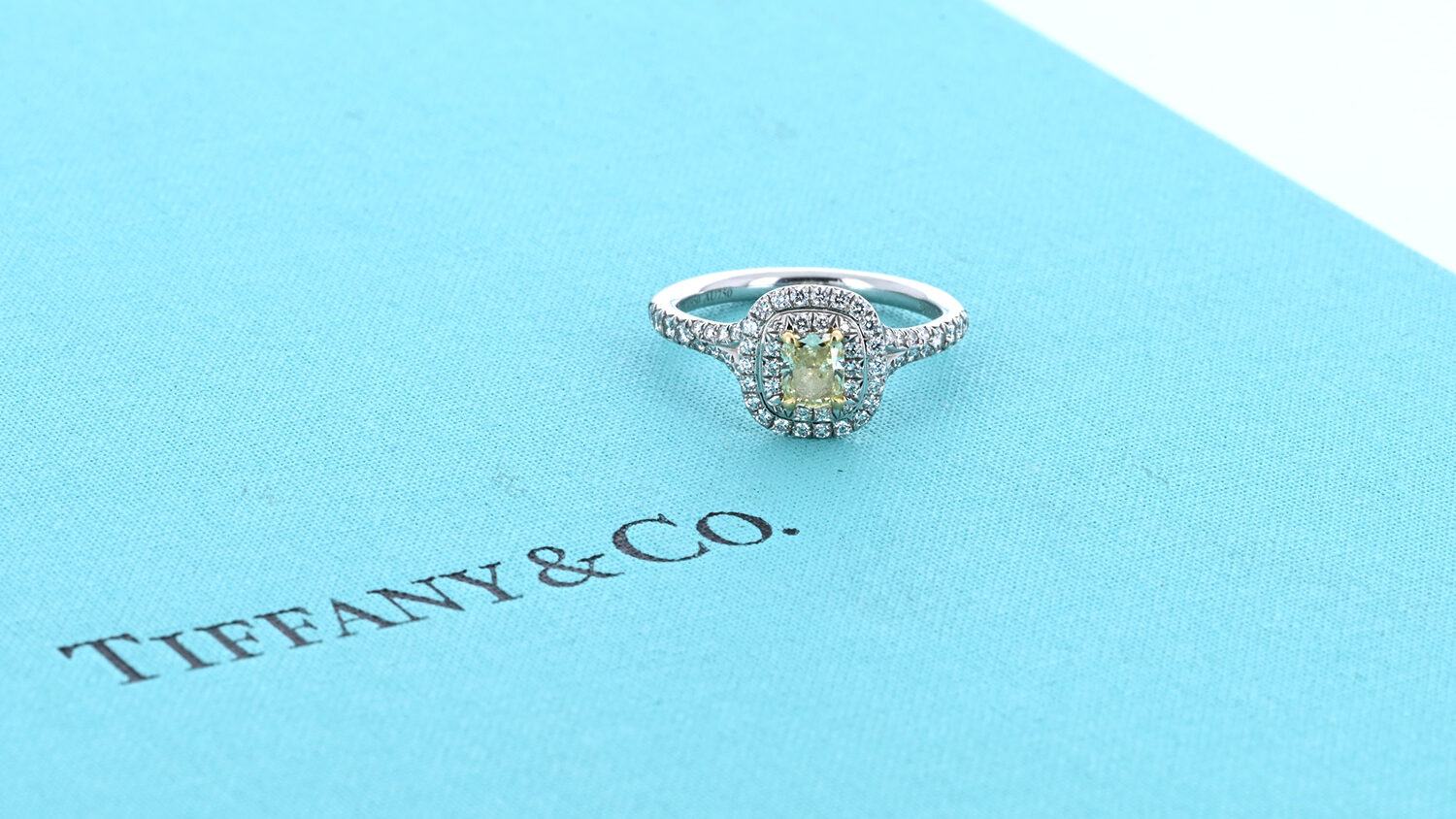
The best practices for selling Tiffany jewelry include:
- Understanding Resale Value
The resale value for Tiffany jewelry is determined by a combination of brand, condition, rarity, and market demand. The brand itself, Tiffany & Co., is highly valuable due to its prestige and recognition in the luxury market.
The condition of the jewelry greatly influences resale value. Rare pieces, limited editions, or designs by renowned artists command higher prices. Market demand also plays a crucial role; if the piece is in high demand, its resale value is higher.
- Finding Trusted Buyers
To ensure a successful sale, finding trusted buyers is critical. Trusted buyers include authorized jewelry dealers, certified pre-owned retailers, or reputable online platforms specializing in luxury items.
Sell directly to other collectors through trusted auction houses. It’s essential to avoid gray market dealers who undervalue or misrepresent the jewelry. Research potential buyers, check reviews, and ensure they have a track record of fair transactions to safeguard your interests.
- Selling with or Without Box & Papers
Selling Tiffany jewelry with its original box and papers increases its value. The box and papers act as proof of authenticity, enhancing the buyer’s confidence in the purchase. If you have the original box, certificate of authenticity, or receipt, make sure to include these when selling.
If these items are lost, it doesn’t necessarily devalue the piece significantly, but it lowers the perceived resale value slightly.
- Auction vs. Direct Sale
When selling Tiffany jewelry, deciding between an auction and a direct sale is a critical choice. Auctions are great for rare or highly desirable items where competitive bidding can drive up the price. However, auction fees are high, and the process takes time.
A direct sale, on the other hand, provides a quicker transaction, but the price may not be as high due to less competition. Consider your urgency and the piece’s rarity to determine which method aligns with your goals.
- Authentication and Documentation Tips
Authenticating Tiffany jewelry and providing proper documentation ensures the buyer’s confidence and helps secure the best price. Always verify the authenticity of the jewelry with a professional appraiser or an authorized Tiffany & Co. retailer.
Make sure to have any certificates, receipts, or appraisals available to prove the jewelry’s origin, design, and value. Having complete documentation helps establish trust and reassures potential buyers, making the transaction smoother and more transparent.
Selling Tiffany jewelry in the US market requires a strategic approach. Understanding the factors that influence resale value, choosing trusted buyers, and ensuring proper documentation help you maximize the return on your investment.
What Factors Determine the Resale Value of Tiffany Jewelry?
The factors that determine the resale value of Tiffany jewelry include brand reputation, material quality, craftsmanship, condition, authenticity, market demand, rarity, designer pieces, intrinsic value, original packaging, and documentation. Understanding these factors helps you determine the potential value of your Tiffany Jewelry in the resale market.
The factors that determine the resale value of Tiffany jewelry include:
- Brand Reputation
Brand reputation is a crucial driver in determining resale value. Tiffany & Co. is renowned for its luxury, quality, and prestige. The brand’s strong market presence and history of fine jewelry craftsmanship make its pieces highly desirable. Buyers are willing to pay more for Tiffany items due to the trust and status the brand holds in the market.
- Material Quality
Material quality refers to the type of metals, gemstones, and other materials used in jewelry. Tiffany is renowned for utilizing high-quality materials, including platinum, 18-karat gold, and ethically sourced diamonds. Jewelry made from premium materials retains value better than pieces made with lower-quality materials, making it a crucial factor in resale price.
- Condition
Condition refers to the wear and tear the jewelry has undergone. Pieces in excellent condition are worth more than those showing significant wear. Jewelry that has been well-maintained or restored attracts higher resale prices than those that has not been cared for properly.
- Authenticity
Authenticity is crucial in determining a product’s resale value. Tiffany jewelry is highly regarded for its authenticity, and a piece with a certificate of authenticity, proper markings, and a valid history is worth more. Counterfeit or non-authentic items are typically worth far less, making authenticity verification a critical factor in resale.
- Market Demand
Market demand plays a significant role in determining the resale value of Tiffany Jewelry. Popular designs, limited-edition items, and vintage pieces experience increased demand for Jewelry, which drives up their prices. The current trends in the luxury jewelry market and consumer preferences also influence how much people are willing to pay for a piece.
- Rarity
Rarity refers to how uncommon or difficult it is to find a particular piece of jewelry. Limited edition or one-of-a-kind pieces, especially those from specific collections or those with unique designs, typically command higher prices due to their scarcity. Rare Tiffany pieces, including discontinued designs, are highly sought after in the resale market.
- Designer Piece
Designer pieces refer to jewelry created by renowned designers or in collaboration with famous artists. Tiffany collaborates with notable designers, and these pieces have a higher resale value due to their exclusivity and connection to a well-known designer. Such items are more desirable among collectors.
- Original Packaging
The original packaging increases the resale value of Tiffany jewelry. The original box, pouch, and papers that came with the jewelry enhance its perceived value and authenticity. Buyers prefer purchasing jewelry with complete packaging, as it assures them of its authenticity and condition.
- Documentation
Documentation includes certificates, receipts, appraisals, and other papers that verify the jewelry’s provenance and value. Having the original receipt or a professional appraisal significantly increases the resale price by providing proof of the piece’s authenticity and original purchase price, making it more attractive to potential buyers.
Understanding these factors enables you to assess the resale value of your Tiffany Jewelry accurately. The combination of the brand’s reputation, material quality, condition, and documentation significantly impacts the price you are expecting in the resale market.
How Much Do Boxes and Papers Affect Tiffany Jewelry Resale Value?
The presence of original boxes and papers significantly enhances the resale value of Tiffany jewelry. Retaining these items increases the resale price by up to 10–20%, depending on the piece’s condition and market demand.
Original packaging and documentation serve as proof of authenticity and provenance, which are crucial in the luxury jewelry market. Buyers and resellers prefer items that come with their original boxes and papers, as this assures the piece’s authenticity and provenance. This added confidence leads to higher offers and a quicker sale.
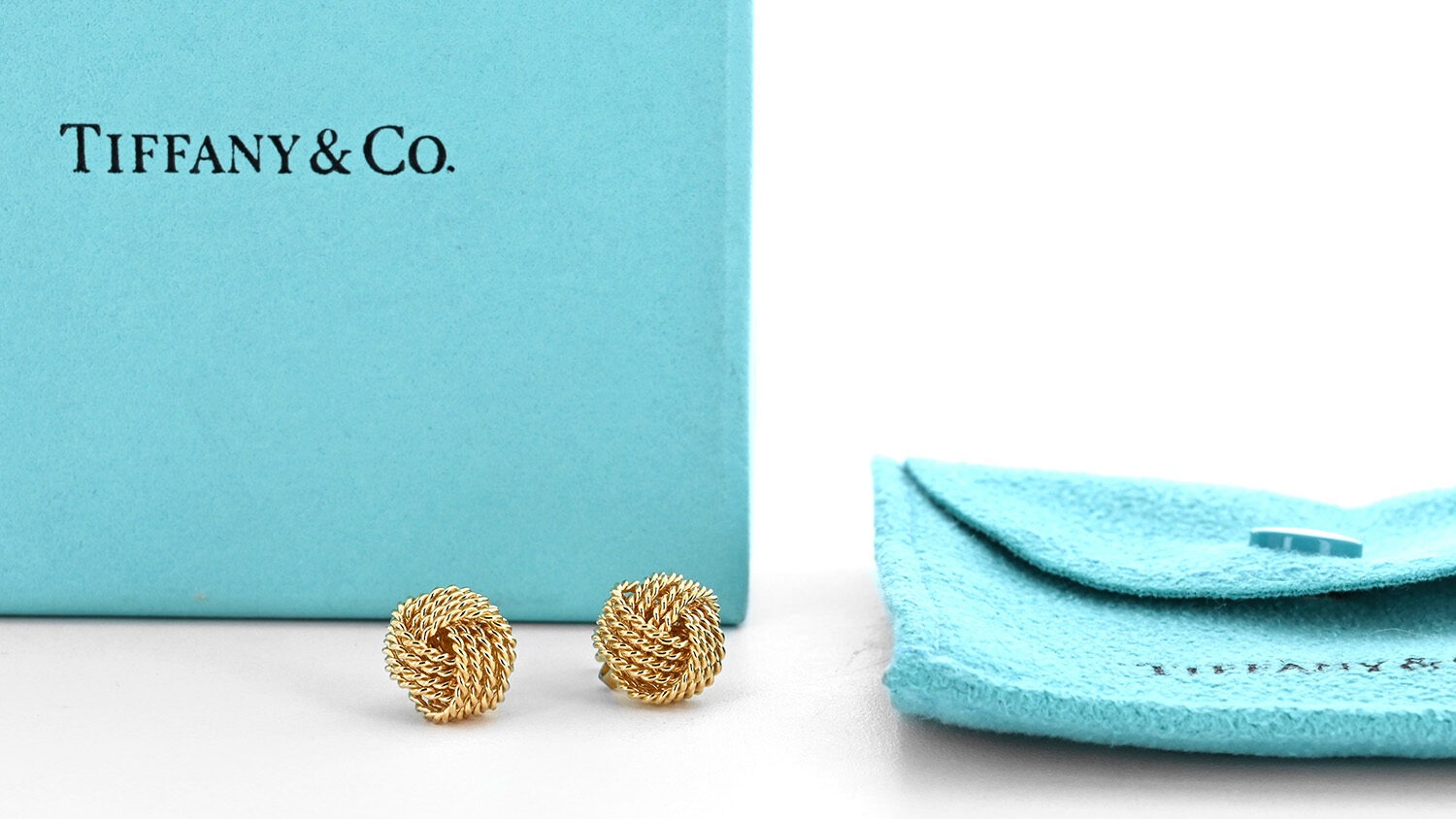
Conversely, the absence of these items leads to increased scrutiny and potentially lower offers. Buyers question the authenticity or condition of the piece without the supporting documentation and packaging, which affects their willingness to pay a premium price.
Collector preferences also play a role; many collectors seek out complete sets, including the original box and papers, as they are more valuable and desirable in the secondary market. Therefore, keeping these items intact is beneficial when considering resale options.
While it’s possible to sell Tiffany jewelry without the original box and papers, having them increases the resale value and appeal to potential buyers.
What Are the Pros of Selling Your Tiffany Jewelry?
The benefits of selling your Tiffany jewelry include strong resale value, the opportunity to access capital, personal freedom, and potential tax benefits. Selling your Tiffany jewelry is a smart decision for both financial flexibility and enhancing your collection.
The benefits of selling your Tiffany jewelry include the following:
- Access to Capital
Selling Tiffany jewelry provides a quick way to access cash when needed. Whether for emergencies, investment opportunities, or other large purchases, selling a high-value piece helps you meet immediate financial needs without taking on debt or disrupting other assets.
- Personal Freedom
Selling your Tiffany jewelry gives you the freedom to make financial decisions without emotional attachment. If the jewelry no longer aligns with your lifestyle or needs, selling it allows you to reinvest in pieces that are more meaningful or better suited to your current preferences.
- Clearing Out Unused Pieces
If you have jewelry pieces that are no longer in regular use, selling them helps clear out space in your collection. This decluttering refreshes your collection and creates room for new acquisitions that better match your evolving taste or style.
- Tax Deductions on Charitable Donations
Donating your Tiffany jewelry to a recognized charity provides tax benefits, including deductions based on the appraised value of the piece. This provides a way to benefit others while also potentially lowering your taxable income.
- Diversification of Assets
Selling Tiffany jewelry can provide an opportunity to diversify your assets. The proceeds from selling are reinvested in various types of investments, such as stocks, real estate, or other collectibles, allowing you to adjust your financial strategy.
- Buyer Confidence Due to Authentication
Tiffany Jewelry’s strong market reputation ensures buyer confidence, especially when selling through trusted platforms or auction houses. This confidence leads to higher offers and a quicker sale, as buyers are assured of the authenticity and high-quality nature of the piece.
- Enabling Upgrades
Selling your Tiffany jewelry creates the financial flexibility to upgrade to newer, more valuable pieces. If you’re looking to refresh your collection or acquire a more timeless, high-value item, selling existing pieces helps fund that transition.
- Adapting to Market Trends
Selling your Tiffany jewelry allows you to adapt to current market trends. If a specific style or model is in high demand, selling during peak interest yields a higher return on investment. Understanding trends in the luxury market gives you the advantage of selling when prices are at their best.
- Streamlining Financial Goals
By selling your jewelry, you can focus your resources on other financial goals. Whether saving for a home, funding education, or building retirement savings, selling valuable items like Tiffany jewelry helps streamline your overall financial planning.
These benefits highlight the various benefits of selling your Tiffany Jewelry, ranging from personal freedom to diversifying investments, thereby providing more flexibility in managing both your collection and finances.
What Are the Red Flags in Selling Tiffany Jewelry?
The red flags in selling Tiffany jewelry are low offers, evasive buyers, signs of wear, damage or repair, paperwork inconsistencies, small or fuzzy logos, emails and contact details, inconsistent stitching or materials, flaws in diamonds, unpolished or unfinished work, and unusual pricing or offers.
Recognizing these red flags helps protect you from making a poor sale or encountering dishonest buyers.

The common red flags to watch out for include:
- Low Offers
Low offers are a clear warning sign when selling Tiffany jewelry. Tiffany pieces hold significant resale value due to the brand’s reputation and craftsmanship. A buyer offers a price far below the market value or appraisal.
In that case, it indicates that the buyer intends to undervalue your jewelry or lacks a complete understanding of its worth. This is especially concerning if the offer doesn’t reflect the high demand for Tiffany products.
- Evasive Buyers
Evasive buyers are hesitant to share essential details about themselves or the sale process. They avoid answering questions about their business or might seem reluctant to provide a secure payment method.
A legitimate buyer is transparent about intentions and the buying process. If they seem too secretive or unwilling to provide clear contact information, it’s a red flag that suggests a scam or dishonest behavior.
- Signs of Wear, Damage, or Repair
Excessive wear, damage, or signs of poorly executed repairs significantly reduce the resale value of your Tiffany jewelry. While light wear and minor scratches are typical, large dents, cracks, or poorly executed repairs indicate that the jewelry is no longer in its original condition.
Tiffany pieces are renowned for their exceptional durability and quality, so damage lowers the price offered by buyers, or they choose to avoid purchasing altogether.
- Paperwork Inconsistencies
Paperwork inconsistencies, such as missing or incorrect certificates, receipts, or appraisals, impact the authenticity of the jewelry. Tiffany jewelry comes with specific documentation that verifies the item’s authenticity and value.
If the paperwork doesn’t match the item or is entirely missing, potential buyers question the authenticity of the piece. Legitimate buyers expect complete and accurate documentation for luxury jewelry.
- Small or Fuzzy Logos
A blurry or poorly etched Tiffany logo is a standard indicator of a counterfeit item. Tiffany jewelry is known for its precise, clean, and sharp engravings. If the logo is faint, off-center, or inconsistent, it suggests that the item is counterfeit. Authentic Tiffany Jewelry has precise, easily readable engravings, and any deviations raise suspicion.
- Inconsistent Stitching or Materials
Inconsistent stitching or mismatched materials indicate that the jewelry is not authentic or made with subpar craftsmanship. Tiffany Jewelry is renowned for its impeccable craftsmanship, and all materials used should match the expected quality (e.g., the type of gold and diamond clarity).
If you notice any inconsistencies in stitching on leather straps, mismatched metals, or poor finishes, these are signs of a counterfeit or low-quality piece.
- Flaws in Diamonds
Flaws in diamonds, mainly when sold as high-quality stones, are a red flag. Tiffany diamonds undergo rigorous grading to ensure the highest quality in terms of clarity, cut, and color. If you notice noticeable inclusions or imperfections that don’t align with the piece’s advertised quality, it indicates that the diamond is not up to Tiffany’s standard. Always request certification for diamond authenticity and quality when selling Tiffany jewelry with diamonds.
- Unusual Pricing or Offers
Unusual pricing that seems too good to be true is questioned. If a buyer offers you a significantly higher price than expected for your Tiffany jewelry, it is a scam.
High offers are used as bait to get you to make a quick decision, only for the deal to fall apart later or for you to receive payment that isn’t legitimate. Similarly, unusually low pricing also suggests the buyer is trying to undervalue your piece.
By being aware of these red flags, you can ensure that your Tiffany jewelry is sold through trustworthy channels and for a fair price. Always take the time to verify buyers and their offers, as well as the authenticity of the jewelry, to ensure you’re not taken advantage of in the selling process.
What Are the Tips to Avoid Common Pitfalls When Selling Tiffany Jewelry?
The tips to avoid common pitfalls when selling Tiffany jewelry include researching trustworthy buyers, insisting on safe and secure transactions, checking for BBB accreditation, avoiding hidden fees, and consulting an authentication professional. Being cautious and informed during the selling process ensures you get the best value for your Tiffany jewelry while avoiding scams and mistakes.
These are the tips to avoid common pitfalls when selling Tiffany jewelry:
- Research the Trustworthy Buyer
One of the most common pitfalls is selling to untrustworthy buyers or platforms. Before agreeing to sell, thoroughly research the buyer’s reputation. Look for online reviews, ratings, and any signs of credibility, such as certifications or affiliations with recognized jewelry associations.
Using reliable, established platforms, such as authorized jewelry dealers, auction houses, or certified second-hand marketplaces, ensures that you deal with trustworthy buyers, thereby reducing the risk of fraud.
- Insist on Safe and Secure Transactions
Always ensure that the transaction process is secure, especially when selling high-value items like Tiffany jewelry. Avoid cash transactions that lack documentation or traceability. Opt for secure payment methods such as bank transfers, certified checks, or trusted payment platforms that offer buyer and seller protection.
This reduces the chances of fraud and provides clear proof of payment. Never agree to sales outside of secure environments, such as personal meetings or unverified online channels.
- Check for BBB Accreditation
The Better Business Bureau (BBB) accreditation helps verify a buyer’s legitimacy and reliability. Sellers should avoid buyers or platforms that aren’t BBB-accredited, as this accreditation provides a measure of trustworthiness.
Businesses with BBB accreditation adhere to high standards of ethics and customer service. Verifying whether the buyer is accredited by checking the Better Business Bureau (BBB) website helps ensure that the transaction is handled professionally and fairly.
- Avoid Hidden Fees
Be mindful of hidden fees that eat into your profit when selling your Tiffany jewelry. Some buyers or platforms have hidden charges for appraisal, shipping, or commissions. Always ask for a clear breakdown of all costs involved in the transaction.
If the buyer charges a percentage-based fee, make sure you understand how much it will impact the total sale price. Transparency in pricing helps you avoid unpleasant surprises in the future.
- Consult an Authentication Professional
Consulting a professional for authentication is crucial to avoid selling counterfeit items or underestimating the value of your jewelry. Tiffany jewelry’s value fluctuates based on authenticity, materials, and design.
A certified gemologist or jewelry appraiser verifies the authenticity of your piece, assesses its condition, and provides an accurate appraisal. Having this professional opinion ensures you don’t undersell the piece or mistakenly believe an item is worth more than it is.
By following these tips, avoid common pitfalls, such as undervaluing your Tiffany jewelry, selling to unreliable buyers, and falling victim to hidden fees or fraud. Proper research, secure transactions, and professional consultation help ensure that you get the best possible outcome when selling your luxury items.
How Do You Start Your Tiffany Jewelry Selling Journey?
To start your Tiffany jewelry selling journey, the first step is to assess your piece and gather all necessary documentation thoroughly. Begin by researching the current market value of your Tiffany jewelry, considering factors like condition, rarity, and demand.
If needed, consult a certified appraiser to determine the accurate value of your piece. Next, ensure you have all relevant paperwork, such as certificates of authenticity, original receipts, and packaging, as these can increase the resale value and buyer confidence.
After assessing the value, clean and inspect your jewelry for any damage or wear. Consider having it professionally cleaned to enhance its appearance before listing it for sale. Once your piece is in optimal condition, decide on the platform through which you will sell it.
Trusted options include Diamond Banc, a reputable buyer of luxury jewelry, as well as other authorized Tiffany dealers, online platforms specializing in luxury jewelry, or auction houses. Diamond Banc offers a secure and professional environment with fair pricing for your Tiffany Jewelry, ensuring you receive top value.
Finally, set realistic expectations regarding the price, based on your research and appraisal. Be prepared for potential negotiations, and ensure that you use secure payment methods to protect yourself during the transaction. Following these steps helps you maximize the value of your Tiffany jewelry while ensuring a smooth and secure selling process.
How can you determine the resale value of my Tiffany & Co. jewelry?
To determine the resale value of your Tiffany & Co. jewelry, consider factors like brand reputation, the jewelry’s condition, rarity, market demand, and the current trends in the luxury jewelry market.
You can use online price guides, consult professional appraisers, or visit trusted buyers, such as Diamond Banc, which specializes in evaluating Tiffany pieces. A detailed appraisal provides a clear value range based on these factors, ensuring you have a realistic expectation before selling.
What Are the Best Practices for Photographing Tiffany Jewelry?
The best practices for photographing Tiffany jewelry include using high-quality, well-lit images that effectively highlight the piece’s details. Use a clean, neutral background to make the jewelry stand out. Capture multiple angles, including close-ups of unique features like the engraving or gemstones.
Ensure there are no distracting reflections or shadows, and take photos in natural light or use diffused artificial lighting to avoid harsh glares. Properly shot photos are essential for online listings, as they enable buyers to assess the quality and authenticity of the jewelry.
Does the condition of my Tiffany jewelry significantly affect its resale price?
Yes, the condition of your Tiffany jewelry significantly affects its resale price. Pieces in pristine condition or those showing minimal wear retain higher value compared to heavily worn or damaged items. Any visible scratches, dents, or alterations decrease the resale price.
Keeping the original polish and avoiding significant repairs enhances the piece’s appeal. Buyers are willing to pay a premium for well-maintained items that require no additional work, ensuring they hold their value better in the resale market.
Can vintage or antique Tiffany jewelry fetch a higher price than modern pieces?
Yes, vintage or antique Tiffany jewelry fetches a higher price than modern pieces. Rarity, design exclusivity, and historical significance contribute to the increased value of older Tiffany pieces. Collectors typically seek out vintage or discontinued designs, which appreciate in value over time.
Limited editions, pieces from specific collections, or those designed by renowned artists like Elsa Peretti are especially prized. The nostalgia and uniqueness of these items drive prices higher in the resale market.
Is Tiffany Jewelry a Good Investment for Future Resale?
Yes, Tiffany jewelry can be a good investment for future resale, especially limited editions, vintage pieces, and those made with high-quality materials like diamonds and platinum. Tiffany’s brand reputation and consistent demand ensure that many of their items retain or appreciate value over time.
Pieces that are rare, well-maintained, and in good condition have particularly strong resale potential. However, market trends and the piece’s desirability play a role in determining long-term resale value.
Do pawn shops buy Tiffany jewelry?
Yes, pawn shops do buy Tiffany jewelry, but they typically offer lower prices than direct buyers or jewelry specialists. Pawn shops don’t fully recognize the value of luxury brands like Tiffany, and the amount offered might reflect the shop’s resale margins and the need for quick liquidity.
If you’re looking to get a fair price, it’s better to explore more specialized buyers, such as Diamond Banc, which offers competitive and transparent pricing for luxury items.
Do Tiffany Lucida Diamond Rings Hold Their Value?
Tiffany Lucida Diamond rings tend to hold their value well due to Tiffany’s iconic brand and the quality of the diamond itself. The Lucida cut is recognized for its unique shape and brilliance, making it highly desirable.
While resale prices for any piece depend on the condition and market demand, Tiffany Lucida rings are typically sought after for their design and history. If in excellent condition, it has a high resale value, especially when accompanied by proper documentation and packaging.
Does Tiffany Jewelry Have Good Resale Value Compared to Other Brands?
Yes, Tiffany jewelry generally has better resale value compared to other luxury brands. Tiffany’s strong brand recognition, high-quality materials, and timeless designs ensure that their pieces retain value over time.
Collectible or limited-edition items, in particular, tend to have higher resale values due to their rarity. Compared to other brands, Tiffany maintains a consistent demand in the secondary market, making it a reliable option for those seeking to resell their pieces. Many Tiffany pieces also appreciate value, especially vintage models.
What’s the best place to sell second-hand Tiffany jewelry?
The best place to sell second-hand Tiffany jewelry is through trusted luxury buyers, i.e., Diamond Banc, who specialize in evaluating and purchasing high-end jewelry. You can also consider certified pre-owned jewelry retailers, auction houses, or authorized Tiffany & Co. dealers.
These platforms ensure that you receive a fair, competitive price while providing an easy and secure selling process. It’s essential to choose reputable buyers who understand the value of Tiffany pieces and offer transparent pricing and safe transactions.
How Do Online Platforms Determine the Value of Used Tiffany Pieces?
Online platforms determine the value of used Tiffany pieces based on factors like brand reputation, condition, age, market demand, and the piece’s rarity. These platforms utilize professional appraisers or automated systems to assess the intrinsic value of jewelry, including its materials, craftsmanship, and gemstone quality.
Resale prices also reflect current market trends and consumer preferences. Reputable platforms, like Diamond Banc, offer fair valuations by considering these factors while ensuring a smooth and secure transaction process.
How Do You Verify the Authenticity of Tiffany & Co. Jewelry?
To verify the authenticity of Tiffany & Co. jewelry, check for identifying hallmarks such as the Tiffany logo, the metal content stamp, and a unique serial number. If you’re curious about how to know if Tiffany & Co. jewelry is real, these key indicators are a great place to start.
Inspect the overall craftsmanship, including the quality of the engraving and finish. If in doubt, seek the help of a professional appraiser or visit an authorized Tiffany store for verification. Diamond Banc offers authentication services to verify the authenticity of your Tiffany jewelry before you sell it, ensuring a secure transaction.
Sell Your JewelryGet a LoanSee Our Locations
